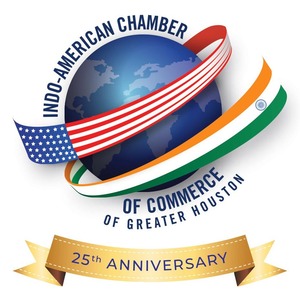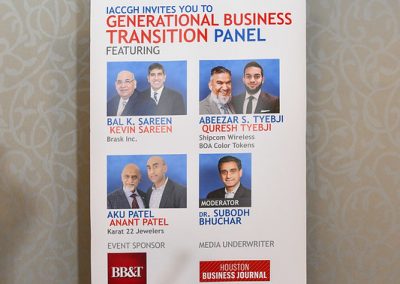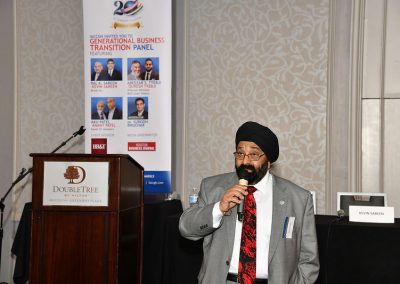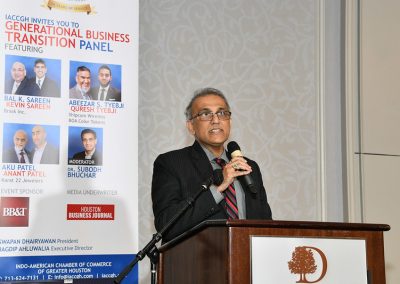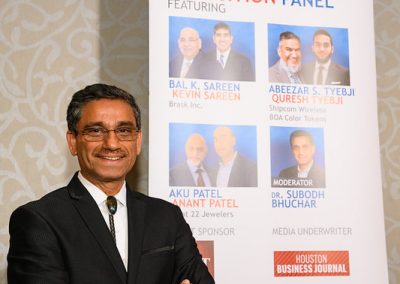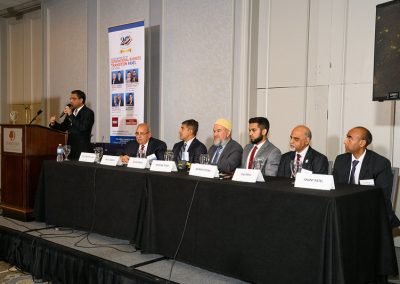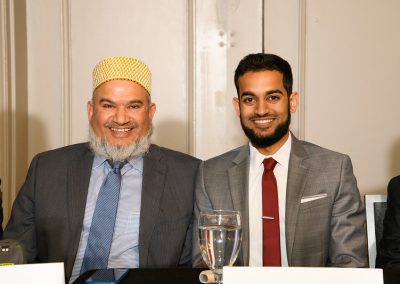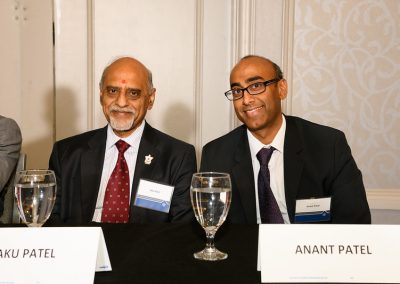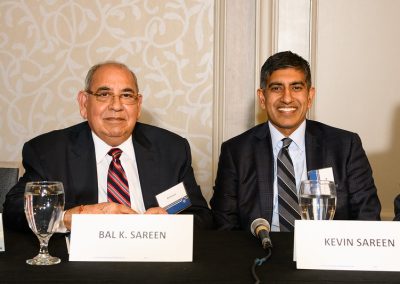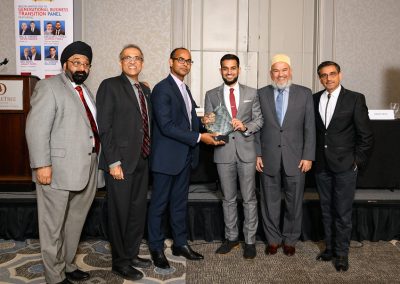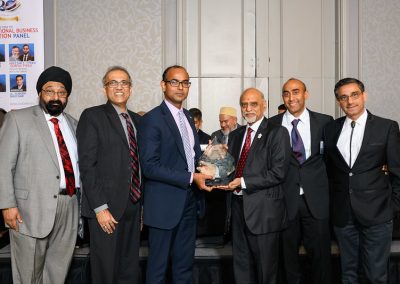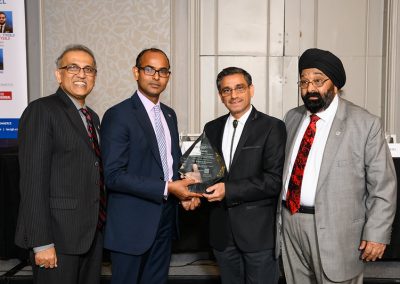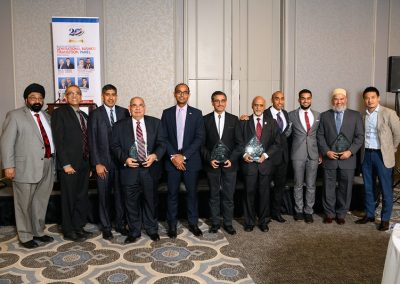By Manu Shah
On October 22, three father-son duos shared the dais at Doubletree Hilton to talk about generational business transition and their induction into the family business. The panel discussion, organized by the IACCGH, is the second of its series and shed light on how business families are preparing to turn over the family business to their children and secure its future.
Executive Director, Jagdip Ahluwalia highlighted the fact that senior panelists Bal Sareen, Abeezar Tyebji and Aku Patel have all been honored with the IACCGH “Businessperson of the Year Award.” The Gen 2 panelists were Kevin Sareen, Quresh Tyebji and Anant Patel.
Practicing family physician, Pediatrician, and talk show host Dr. Subodh Bhuchar as Moderator brought his wit and easy comebacks to the discussion.
Event sponsors BB&T were enthused about underwriting the series after attending the first series which saw Houston’s three Indo American families- the Bhutadas, Malani’s and the Dhingras share how they are handling the transition in their business. BB&T representative Mark Chou stated that he looked forward to a long-term relationship with the Chamber.
Welcoming the panelists, President Swapan Dhairyawan observed that many in the second generation of family-owned businesses opted to carve out their own paths before returning to the family fold.
The panelists were from three sectors: the Sareens came from manufacturing, the Tyebjis from the service sector and the Patels from retail. Karat 22, a high-end diamond and gold jewelry business was started by Meena and Aku Patel as a home-based business before becoming a leading name in jewelry. Shipcom Wireless, a leading global service provider of integrated supply chain execution software solutions was founded by Abeezar Tyebji while Brask, Inc. was started by Bal Sareen and is today the second-largest manufacturer of heat exchangers in the US.
According to statistics, family-owned businesses account for an estimated 80% of companies worldwide and are the largest source of long-term employment in most countries. In the US, they employ 60% of workers and create 78% of new jobs.
Was Gen 2 keen to pick up the baton? Surprisingly, the answer is no. All three were reluctant to follow in dad’s footsteps. Kevin Sareen, a mechanical engineer had to prove to himself that he could do it on his own. He worked in the corporate environment for several years before taking charge of the company’s second plant in Pearland. Quresh’s degree in architecture and business led him to design Smart Airports in New Jersey while Anant, having seen the early struggles of the business, was set to start a job after his degree in finance and accounting.
This resistance was gradually worn down over the years. As Bal Sareen put it to Kevin “if you are going to work that hard, work for yourself. Aku Patel advised his son to talk to friends who had joined the corporate world only to return to the family business because the “opportunity to grow is exponential.” Quresh was drawn by Shipcom’s mission to “innovate simple applications because of the age we live in.”
As far as exit strategies go, Bal Sareen shared his intention to wean away from the business by 2025. He also added that when a child takes over the business and sustains the same value system, the continuity sends a reassuring signal to banks, employees, and customers. The Tyebjis are looking for world-class talent, meritocracy, and leadership while in Aku Patel’s case, he hasn’t really considered retiring from the business because he quipped “he’s still young.”
All three founders share not only a strong sense of philanthropy but also a spiritual inclination. This, they believed, helped them cope with setbacks and challenges as in the case of Aku Patel, whose shop was broken into and termed as the biggest break-in in the history of Texas.
One of the challenges which all three youngsters agreed on was that generational conflict was inevitable. Knowing that the best decision will benefit the company helps Aku and Anant find common ground. For Quresh the “yin and yang balance” at the end of the day while Kevin believed that differences helped a business “evolve as it forces one to look at the other’s perspective.” True millennials, all three believed in adopting innovative technologies and data, which could sometimes “be met with some resistance.”
While Gen 1’s knowledge and experience prove invaluable, Abeezar was quick to acknowledge that he has learned tremendously from the rising generation. The hour-long dialogue indicated that the next generation while feeling the weight of their responsibility, look set to “fly the flag”.
